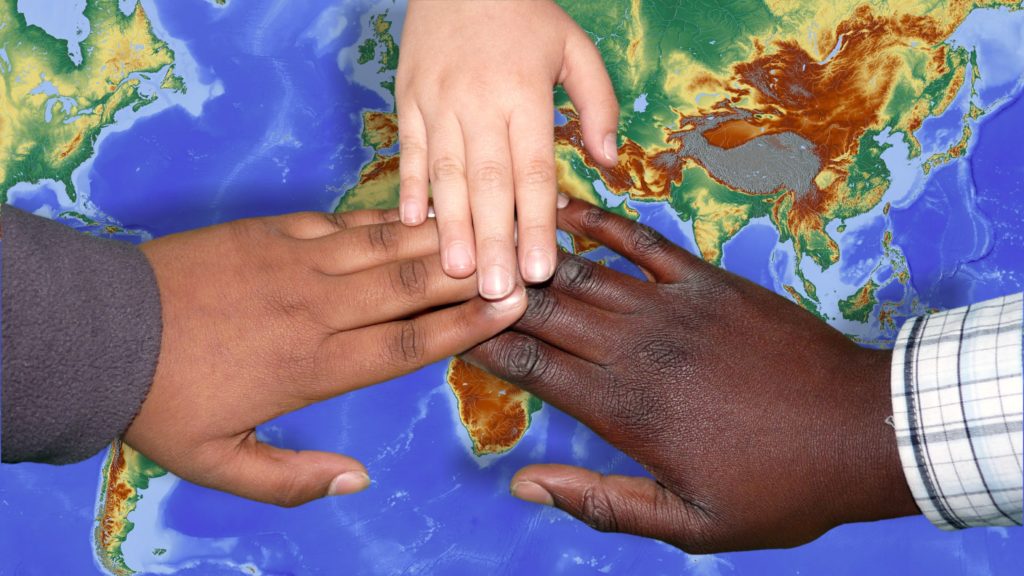Culturo-Behavior Science for a Better World Conference Sets New Directions

by Mark Mattaini
ABAI’s first culturo-behavior science conference, held virtually October 7–9, 2020, reflects the organization’s decision to expand attention to the potential for behavior science to contribute to larger-scale community and cultural challenges. At a time when pressing local, national, and global issues including major public health issues, human rights violations, poverty and other inequities, and the overriding crisis of climate change are of urgent concern, the need for such expansion is clear. Presenters and attendees collectively argued that emerging behavior science research and theory have real potential to be of help—but only in collaboration with communities, other disciplines, and movements already active in these areas. For that reason, this transdisciplinary conference included presentations by, and discussions among, behavior scientists and specialists in urgent current challenges. Responses from the nearly 400 attendees, and observations during the conference, indicate real excitement for this work.
The conference began with a keynote address by Lonnie Thompson, a renowned professor and researcher of earth sciences from Ohio State, returning to us after serving as the keynote speaker at ABAI’s 2012 Behavior Change for a Sustainable World Conference, to emphasize the increasing urgency of climate change. Three ABAI scientists specializing in this area (Tony Biglan, Oregon Research Institute; Magnus Johansson, Oslo Metropolitan University; and Mark Alavosius, Praxis2LLC) followed in a symposium exploring realistic opportunities to further advance work in this critical area. Other specialists presenting on the first day of the conference included Vince Francisco (University of Kansas) speaking about behavior science and community health promotion; Kerri Kennedy (American Friends Service Committee) providing insight into global peace and security interventions; and Casey Holtschneider, a social work professor from Northeastern Illinois University and executive director of the LYTE Collective in Chicago, presenting research addressing more just and effective responses to youth homelessness. Angela Campbell (HACC, Central Pennsylvania’s Community College), Mark Jackson (Wayne State University), and Monica Porter (Indiana University, South Bend), all graduates of the Western Michigan University behavior analysis program, completed the day in a symposium on increasing Black participation in higher education.
Thursday began with a keynote offered by Bruce Thyer (Florida State University), a social worker and psychologist who presented a behavior analytic perspective on social welfare policy, expanding on work he developed in the 1996 book Finding Solutions to Social Problems: Behavioral Strategies for Change (Mattaini & Thyer). Three of our own, Chris Ninness (Behavioral Software Systems), Jomella Watson-Thompson (University of Kansas), and Roberta Freitas Lemos (Fralin Biomedical Research Institute, Virginia Tech Carilion), responded in a symposium that included attention to child welfare, violence in marginalized communities, chronic poverty, and social exclusion. Expanding further, Kaston Anderson-Carpenter (Michigan State University) provided an invited address in which he argued for transdisciplinary behavior science and public health expansions in marginalized and underserved communities, with special attention to lesbian, gay, bisexual, transgender, and queer populations.
Given the breadth and complexities of the presentations to that point, Sigrid Glenn (University of North Texas), Jonathan Krispin (Valdosta State University), Ramona Houmanfar (University of Nevada, Reno), and Felipe Leite (Imagine Tecnologia Comportamental) took on the challenge of clarifying and expanding on critical conceptual issues in culturo-behavior science in a symposium. This was followed by a related symposium on research and training on culturo-behavior science, areas that clearly require attention given the expansion into the kind of efforts presented in the conference; presenting were Ingunn Sandaker (Oslo Metropolitan University), Aécio Borba Vasconcelos Neto (Universidade Federal do Pará ), Traci Cihon (University of North Texas), and Marcelo Benvenuti (Universidade de São Paulo).
Presentations for the day ended with discussion of understanding and informing policy and funding decision-making processes, particularly at the federal level, provided by Juliane Baron, executive director of the Federation of Associations in Behavioral and Brain Sciences, and Sharon Courtney of Tulane University. A dinner break was followed by an evening poster session, with more than 100 posters, including a contest judged by senior presenters and members offering three $1,000 prizes for the strongest posters (to be donated to the charity of choice of the winners).
The final day began with a keynote by Carlos Guevara, associate director of the UnidosUS Immigration Policy Project, titled “A Generation at Risk: Family Separation Policies Across the Country and Their Impact on American Children.” The engaging symposium that followed on immigration and human rights was offered by Richard Rakos (Cleveland State University), Megan Kirby (University of South Florida), and Shahla Ala’i (University of North Texas). In one of the most important presentations of the event, Robert Horner (University of Oregon) spoke on implementing behavior analysis at scales of social importance—clearly an essential challenge given the range of issues addressed in this conference. Maria Amalia Andery (Pontifícia Universidade Católica de São Paulo) and Emmanuel Tourinho (Universidade Federal do Pará) then addressed the importance of universities in advancing work addressing major social issues.
The day ended with two presentations, the first by Roberto Aspholm (University of Saint Thomas, Minnesota): “Conceptualizing Gang Violence Prevention From the Streets Up,” one of several presentations that specifically addressed engaging communities and marginalized populations in collaborative efforts to understand and develop effective responses to the urgent and complex issues discussed throughout the conference. The final address of the event, “Interdisciplinary Action Supporting Cultures of Social and Environmental Justice,” was presented by Mark Mattaini (Jane Addams College of Social Work, University of Illinois at Chicago), the conference chair. Also integrated into the program during breaks were a serious of informal networking sessions, led by several of the senior presenters—particularly valuable in virtual conferences where informally meeting between events is more complex than at on-site gatherings.
This Culturo-Behavior Science for a Better World Conference was not a stand-alone event, but rather an important resource in pursuing ABAI’s recent commitment to expanding attention to community- and cultural-level science. From Skinner’s beginning, behavior analysts and scientists have long asserted that they could serve as unique resources for addressing social issues, primarily by constructing societies that “achieve conditions under which human beings will show the productivity, the creativity, and the strength inherent in their genetic endowment and which are essential to the survival of the species” (Skinner, 1975). ABAI is taking several related steps toward advancing that goal, this conference among them. In addition, ABAI in 2019 both integrated the now 42-year-old journal Behavior and Social Issues into our stable of journals, and developed a VCS to support a new graduate-level certificate in culturo-behavior science. In addition, in 2020 the first book in ABAI’s behavior science book series, Behavior Science Perspectives on Culture and Community (Cihon & Mattaini) was published. It is becoming clear that attention to the kinds of challenges explored in these events and resources, given our growing knowledge, provides new opportunities—but also new obligations.
References
Cihon, T. M., & Mattaini, M. A. (2020). Behavior science perspectives on culture and community. Springer.
Mattaini, M. A., & Thyer, B. A. (1996). Finding solutions to social problems:
Behavioral strategies for change. APA Books.
Skinner, B. F. (1975). The ethics of helping people. Criminal Law Bulletin, 11, 623–636.


